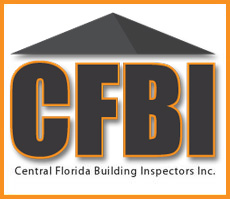How To Know If Your Well Water Quality Is Safe
We’ve all heard facts about water. The human body is made of 70% water. You can’t live without water for more than three days.
The bottom line is that water is essential to the human body. However, obtaining clean, drinking water is in a whole other ballpark. Many people in third-world countries struggle with this dilemma and get sick with diseases such as cholera, dysentery, typhoid, and polio.
That’s where wells come into play. Well water can be used for a wide variety of purposes, from livestock watering and chemical spraying to drinking water. Knowing the suitability of your well water for your needs is a critical component in making the correct decision as to how to test your well water.
During the process of buying a home with a well, some lenders will require the water to be tested for potability. The FHA (Federal Housing Administration) and VA (Veterens Affairs) are two lending institutions that will require this as part of the loan process.
After reading this article, you should know how to tell your well water is safe.
Well Water Quality
As mentioned earlier, knowing what you are going to use your well water for is the first component in your well water assessment. After this, it’s time to know what to test for. While different risks exist for varied living areas, making sure to test for the following risks is critical:
- Potability - one of the most comprehensive tests available. This test checks for nitrates, pH levels, iron, manganese, and more.
- Coliform bacteria - comes from animal digestive tracts and is often found in waste. Harmful variations such as the E. coli 0157: H7 can be dangerous to human health.
- Nitrate - commonly found in groundwater. Can pose threats to babies who are under 6 months since nitrates interfere with the ability of blood to carry oxygen.
- Ions - include sodium, iron, chloride, which can impact the taste and smell of water
- Sulfate - can act as a laxative which leads to dehydration
- Fluoride - can lead to long-term dental and thyroid issues
- TDS (total dissolved solids) - don’t pose any health risks related to drinking water but can corrode pipes faster than usual and impact other uses like washing clothes.
- Others - specific potability tests can test for dangerous compounds like arsenic and uranium.
While this extensive list can seem intimidating, it should motivate you to run tests on your well water. Hopefully, these tests have shown you how serious it is to have clean drinking water.
How to Test?
Testing well water in regular increments ensures that you know what you’re drinking. After all, you are what you drink.
The minimum time increment for well water tests is once per year. If you have a shallow well, a regular seasonal test is recommended as well since these are more inclined towards contamination.
Testing the right source is also equally important. The tap and the source are the two locations to test. Doing so will make sure your treatment system is working correctly.
Where to Test?
Here at Central Florida Building Inspectors, we proudly provide well water testing for homeowners and for homebuyers. Have one of our certified home inspectors visit your property and collect the water and deliver it to a qualified laboratory. The results will be available in a few days for most tests but can take up to 2 weeks depending on the type of well water analysis.
Getting in touch with a building inspector can get you connected to credible water testing providers.
Closing the Tap
There you have it! Checking your well water quality doesn’t have to be hard. As you follow these tips, you should be good to go.
For all your other inspection service needs, make sure to check our website out.
